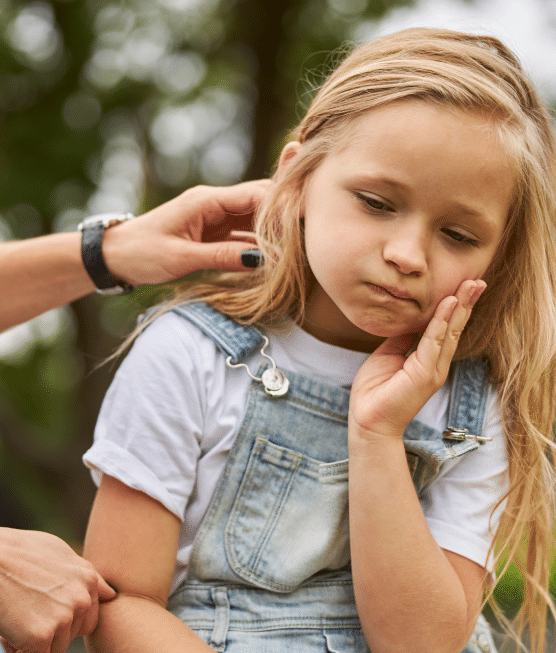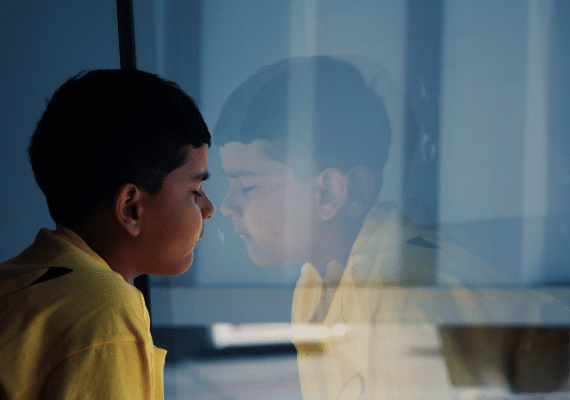How Trauma Affects the Brain
When you suffer a severe injury from an accident, the urgency of treating physical injuries often overshadows the psychological trauma you may have experienced. Whether or not you make a full physical recovery, unresolved emotional trauma from a serious accident can profoundly impact your ability to function as you could before the accident.
Home » How Trauma Affects the Brain – The Lanier Law Firm
It is normal to experience some emotional distress following an accident. However, if you experience heightened anxiety, depression, nightmares, or other mental health symptoms for more than a few weeks, you may have sustained a psychological injury that requires treatment.
Symptoms of Trauma After an Injury
An emotional response after an accident is normal. You may feel a combination of fear, horror, and relief. If your physical injuries are severe and disabling, you may be experiencing anxiety about the future and profound sadness about the loss of your ability to function as you could before.

Non-Bereavement Grief
Most people think of grief in terms of the death of a loved one, but grief is not limited to bereavement. Non-bereavement grief occurs when you experience other types of losses, including the losses that a new disability can cause. These losses include impacts on your health and ability to carry out your plans and participate in activities you previously enjoyed. The primary symptoms of non-bereavement grief after an accident include yearning for your life as it was before the accident and difficulty accepting the changes.

Fear and Anxiety
You may experience extreme anxiety when you are in similar circumstances that were present when the accident occurred, such as being in a car. If unaddressed, it could prevent you from receiving medical treatment, resuming work, or participating in other normal activities. Anxiety can take on the following forms:
- Generalized anxiety disorder – excessive worry that lasts for six months or more
- Panic disorder – a tendency to experience panic attacks, moments of intense fear even when there is no danger
- Phobias – intense fears of things that do not present real danger
Rumination
Rumination is thinking about the accident over and over again. You may be unable to stop replaying it in your mind, and you may imagine what could have happened if you had done something differently.
Depression
Depression is a mood disorder that can cause pervasive sadness, a loss of interest in activities you previously enjoyed, and a lack of motivation to go to work or school. When these effects last two weeks or more, you may be diagnosed with major depression.
Dissociation
You may have lost touch with reality or felt disconnected from your body during the accident. Circumstances similar to those surrounding the accident may trigger similar experiences.
PTSD After an Injury
Post-traumatic stress disorder, or PTSD, is a mental health condition that can develop after an accident, which may lead to the following symptoms:
- Intrusive thoughts
- Nightmares
- Flashbacks
- Avoidance of circumstances similar to the accident
- Inability to talk about the accident
- Uncontrollable negative emotions
- Repressed memories of the accident
- Detachment from others
- Lack of positive emotions
- Irritability
- Self-destructive behavior
- Hypervigilance
- Difficulty concentrating
- Being easily startled
PTSD is a serious disorder that can cause changes in the brain and the function of the body. People with PTSD tend to have lower levels of the stress hormone cortisol and a higher sympathetic nervous system response. The sympathetic nervous system is the bodily system that triggers the fight or flight response. These changes can lead to an elevated heart rate and high blood pressure.
PTSD can cause brain structure changes, including a smaller hippocampus. The hippocampus processes learning, memory, and motivation. The amygdala processes emotions and responses to fear. It can become oversensitive in people with PTSD. The medial prefrontal cortex controls some of the amygdala’s reactivity to emotions, and it is often smaller and less responsive in people with PTSD.
Car Accidents
PTSD is a common response to a car accident. A study published by the Journal of Multidisciplinary Healthcare found that 26.43 percent of road traffic accident survivors had developed PTSD 12 months after the accident. The following survivors had the highest risk of PTSD:
- Women
- Those who lost income because of the accident
- Those who cannot return to work because of the accident
Car accident victims can also develop amaxaphobia, the fear of driving or riding in a vehicle. People with amaxaphobia may avoid going to work or pursuing necessary treatment for injuries. Amaxaphobia can extend to other vehicles besides cars, including airplanes, trains, buses, and subways.

Slips and Falls
Slip and fall accidents are one of the leading causes of disability, especially in older people. Approximately 70 percent of people who have recently fallen report a subsequent fear of falling, and 50 percent of these individuals avoid physical and social activities because of the fear, which increases the risk of depression, weakens the body, and ultimately increases the risk of slipping and falling again. Traumatic brain injury is a common injury in falls, which increases the risk of mental health effects.
Veterans
Injuries in military combat that may lead to psychological effects include the following:
- Head injuries from bullets, explosion shock waves, and violence
- Gunshot wounds anywhere in the body
- Shrapnel wounds
- Loss of limbs
- Vehicle accidents
Approximately 14 to 16 percent of U.S. service members who served in Afghanistan and Iraq develop PTSD or depression. Every year in the United States, over 6,000 veterans commit suicide, accounting for 17.8 percent of all suicides. The risk of suicide is highest during the first year after a veteran returns from service. Veterans also have an increased risk of substance use disorder.
Traumatic Brain Injuries and Mental Health
Traumatic brain injuries, or TBIs, involve changes in how the brain functions as a result of an external force. The University of Florida reports that the primary causes of traumatic brain injuries in the United States are falls, traffic accidents, and violence.
Mental Health Issues Following a TBI
The physical mechanisms of TBI can increase your vulnerability to PTSD. Physical damage to the brain in conjunction with a traumatic experience damages the neural circuits that regulate fear responses. TBI can also lead to cognitive impairment that reduces coping skills. Inflammatory processes following TBI can cause damage to any part of the brain, including the parts that regulate fear and emotion.ç

The symptoms of TBI can mimic those of PTSD. In fact, they are so similar that health care professionals often have difficulty determining which condition is causing symptoms. Our traumatic brain injury lawyers know that a TBI can occur with or without evidence of a physical injury.
TBI symptoms include the following:
- Severe irritability
- Emotional instability
- Apathy
- Aggression
- Paranoia
- Major depressive disorders
- Anxiety disorders
- Panic disorders
- Social phobias
- Increased impulsivity
People with traumatic brain injury have a heightened risk of substance use disorder. Military personnel with TBI are especially susceptible to major depressive disorder, PTSD, and suicide.
People who suffer a severe traumatic brain injury often experience reduced emotional distress. This could be related to a longer period of unconsciousness during or after the accident or loss of memory of the accident.
Treat your TBI and Mental Health Together
The most effective care for TBI is holistic, person-centered care from a multidisciplinary health care team that focuses on mental health and physical recovery at the same time. Effective TBI therapy focuses on the whole person and promotes education, patient participation, and quality of life. It may include a combination of the following:
- Physical therapy
- Occupational therapy
- Speech therapy
- Psychological counseling
- Vocational counseling
- Cognitive behavioral therapy
Your health care provider may also be able to refer you to a local or online support group for traumatic brain injury survivors who can understand what you are going through and provide insight into coping with any new limitations your TBI is causing. You may feel like isolating yourself when you are coping with a TBI, but this is an important time to be around people who care about you and seek support.
Mental Health Effects of Injuries on Children
Children are still learning about the world around them. Adverse childhood experiences can profoundly impact a child’s developing brain and health, and these effects can follow them into adulthood.
When the brain perceives a threat, the body releases hormones like cortisol and adrenaline to help the body survive, usually for a short time until the danger has passed. A traumatic event like a car accident can prolong the stress response as the child struggles to interpret what happened. Chronic elevation of stress hormones can weaken the parts of a child’s brain that control memory, thinking, and emotional processing.

Traumatized preschool-aged children may be unable to articulate their emotions. They may display separation anxiety, changes in eating habits, crying, and sleep disturbances. Older children may have anxiety, sleep disturbances, and difficulty concentrating. They may express guilt, shame, and fear. Adolescents may develop depression and eating disorders or engage in self-harm, substance abuse, and risky sexual behavior in response to the trauma.
Without intervention, children who experience trauma at any age are more likely to have learning problems, a decline in academic performance, and involvement in the juvenile justice system.
PTSD in Children
During the first few days and weeks that follow the accident, your child may experience acute stress disorder, a form of emotional distress with symptoms that are similar to PTSD, such as intrusive thoughts, difficulty concentrating, nightmares, and flashbacks.
If symptoms last longer than a month, your child may have PTSD. As the child grows older and develops more complex thinking skills, the symptoms and thinking patterns associated with PTSD can change. They may develop new adaptive behaviors to cope with the trauma. For example, a younger child does not yet think about abstract concepts such as fairness, but older children with PTSD may view the world as unfair because of a trauma that occurred during early childhood.

Long-Term Effects of Emotional Trauma During Childhood
A child’s response to trauma may mimic other conditions common to childhood, such as attention deficit disorder, oppositional defiant disorder, or simple defiance. Treating these symptoms without addressing the underlying trauma can result in your child carrying the trauma into adulthood.
The CDC reports that people with adverse childhood experiences are more likely to experience mental illness, depression, and substance abuse disorder as adults. They tend to have lower educational achievement and unemployment rates. They are more likely to live in poverty, misuse opioids, or commit suicide.
The CDC has also found that children with adverse childhood experiences are more likely to have chronic health problems during adulthood, including the following:
- COPD
- Asthma
- Kidney disease
- Stroke risk
- Coronary heart disease
- Cancer
- Obesity
- Diabetes
If your child has been injured in a serious accident, these long-term effects are not inevitable. Early intervention and parental support can help your child heal from the trauma and enjoy a full life.
Helping Children Recover from Mental Trauma
The most important way to help your child process trauma is to provide a safe environment that encourages healthy coping strategies. Reestablish normal routines and allow your child to talk about the accident when ready. However, don’t force difficult conversations.
Your emotions about the accident can have a profound effect on your child. If you are experiencing anxiety about the accident, your child may sense this and internalize it. For the sake of your child, work on finding healthy coping mechanisms for your own traumatic responses and seek professional help if you are having difficulty. Avoid talking to your child about your own anxiety.
Provide your child with positive experiences that allow them to have fun and make decisions that reinforce a sense of control. Expose your child to activities they previously enjoyed, such as sports and time with family and friends.
Be patient with your child. If your child acts out in unusual ways, respond in a calm, reassuring, and truthful manner. Note any unusual behaviors and try to identify triggers that provoke them. This can allow you to teach your child healthy ways to interpret events that bring back the trauma.
Seek Help When Needed
If you don’t notice progress within a few weeks after the accident, your child may need professional support to overcome the trauma. Look for a therapist that specializes in helping children process trauma.
Trauma-focused cognitive behavioral therapy is a proven approach for children of all ages. It involves teaching children the relationship between their thoughts, feelings, and behaviors. Children also learn how to self-soothe through such methods as relaxation techniques and deep breathing. During cognitive behavioral therapy, your child can also learn to interpret the traumatic experience differently by replacing distorted thinking with healthy thoughts.
Coping with Physical Injuries
If you are coping with severe physical injuries following a car accident, you may be facing new disabilities that will affect you for life, such as the following:
- Loss of limbs
- Loss of bodily functions
- Paralysis or limited mobility
- Permanent scarring
- Severe burn injuries
- Lifelong medical treatment
- Chronic pain
It is normal to feel profound grief as a result of these types of injuries. Even if the injury will forever change your life, don’t allow yourself to become socially isolated. Acknowledge your feelings, and allow yourself to grieve. Talk to your family about your feelings. If your family is unable to provide the support you need, consider talking to a trauma therapist. Try to establish a routine and discover things you can do. Set realistic goals for things you can learn to do.
Coping with the Psychological Effects of Trauma
Regardless of whether your accident resulted in serious injuries, the emotional trauma alone can be debilitating. Any real or perceived threat of death or injury has the potential to cause post-traumatic stress and other mental health effects.
Dissociation
If you experience symptoms of dissociation, Psychology Today recommends the following techniques to overcome it:
- Learn to recognize when it happens.
- Become attuned to the changes in your body before, during, and after dissociation.
- Retrain the brain and body to manage it.
Experiencing dissociation does not mean you are crazy or losing touch with reality. It is a normal defense mechanism. If you are unable to stop experiencing episodes, a trauma therapist can provide strategies to help you overcome them.
Therapy Approaches
The following therapeutic approaches may be effective in overcoming the effects of trauma:
- Cognitive behavioral therapy – a form of talk therapy that teaches you to overcome unhelpful thinking patterns that impact your emotions
- Medication – often a temporary solution used in conjunction with other therapies to relieve strong emotions while you work through them
- Eye movement desensitization and reprocessing therapy (EMDR) – a form of talk therapy in which you follow an object with your eyes while you talk about the accident, which allows you to reprocess the traumatic event in a way that repairs the memory and your response to it
- Exposure therapy – A form of therapy that gradually exposes you to the circumstances surrounding a traumatic event through real, imagined, or virtual exposure methods
In addition, support groups can connect you with people who have experienced similar trauma as you, provide reassurance that you are not alone, and help you find coping strategies that have worked for others.
Survivor’s Guilt
Survivor’s guilt occurs when you survive an accident that killed or severely injured someone else. You may feel like you didn’t do enough to help the other person, or you may feel guilty for being able to enjoy your life when someone else in the same accident no longer can. These are all manifestations of survivor’s guilt.
There is nothing wrong with being happy and enjoying your life even though someone else has died or become disabled from the same accident. However, it can be difficult to come to terms with this. One technique you can try at home is consciously practicing gratitude, which has been proven to help reverse negative thinking patterns.
Financial and Legal Considerations
The physical and emotional trauma of a serious accident can cause you to miss a significant number of work days, or it can prevent you from continuing in your current job or any job. You may need ongoing medical care for your physical and psychological injuries, but you may not have insurance if you can no longer work.
You may be able to receive financial assistance through the following when you have been injured in an accident:
- Disability insurance through your employer
- Social Security Disability Insurance
- Workers’ compensation for injuries on the job
- Local social services agencies for the disabled
- No-fault or liability insurance policies if someone else caused the accident
- Fundraising through Help Hope Live if you have a spinal cord injury
- Family members
- Charitable and social service organizations in your community
- Catastrophic injury lawsuit against those responsible for your injuries
Practicing Self-Care After an Injury
A study published in the Journal of Translational Medicine found women with anxiety, depression, and PTSD following a car accident saw improvement by practicing yoga techniques. Yoga is just one example of a self-care technique that can help you cope with the trauma of a serious accident. Taking care of yourself can reduce depression, boost brain health, and facilitate healing. Other approaches include maintaining healthy eating habits, taking care of your physical needs, and continuing spiritual practices you enjoyed before.
Active coping strategies include listening to music, journaling, and breathing exercises. Breathing exercises can instill new habits to help you cope when you experience anxiety, panic, intrusive thoughts, and negative emotions.
Contact Our Law Firm If Someone Else Is Responsible for Your Injury
If you or your loved one has suffered a serious injury in any type of accident, we can help you pursue financial compensation for your lost wages, medical expenses, pain and suffering, and other losses when someone else’s negligence caused your injuries. Contact us today for a free consultation.
